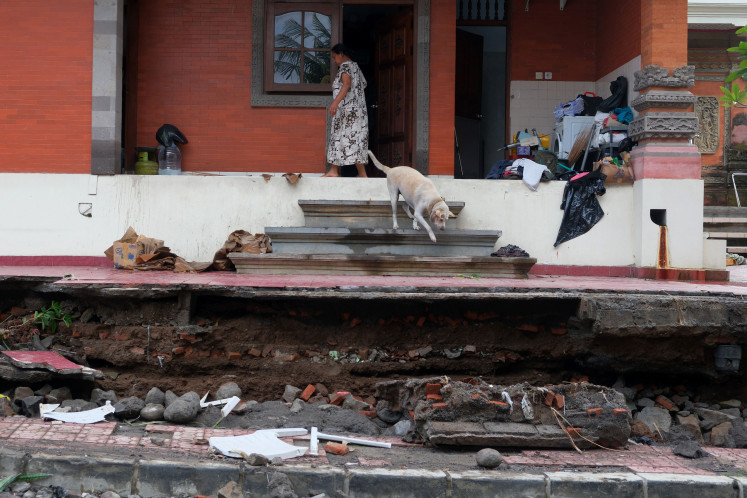Popular Reads
Top Results
Can't find what you're looking for?
View all search resultsPopular Reads
Top Results
Can't find what you're looking for?
View all search resultsOne Map Policy’s success hinges on local involvement
Indonesia’s ambitious One Map Policy, which aims to produce a single, integrated, nationwide database of various political and economic information by 2019, is doomed to fail if the process only happens at the national level, but not at the local
Change text size
Gift Premium Articles
to Anyone
I
ndonesia’s ambitious One Map Policy, which aims to produce a single, integrated, nationwide database of various political and economic information by 2019, is doomed to fail if the process only happens at the national level, but not at the local.
In February, President Joko “Jokowi” Widodo issued Presidential Decree No. 9/2016 on the One Map Policy to speed up the implementation of the policy as mandated by Law No. 4/2011 on geospatial information. The One Map Policy aims to solve problems, such as rampant land disputes, that have arisen from the use of different data and maps for decades.
The Geospatial Information Agency (BIG), as the government institution tasked with creating the single map, has finished the first stage of the project, which is the compilation of maps from all government agencies.
“We have completed the compilation [phase] this July. All government institutions have submitted their existing thematic maps,” BIG geospatial information thematic deputy Nurwadjedi told The Jakarta Post.’’
Right now, BIG is verifying the data and integrating them into the agency’s basic geospatial information map, according to him. The agency expects to finish integrating the data in September.
By the end of this year, BIG aims to finish the integrated map of Kalimantan, believed to be the most difficult region to map due to its many conflicting maps even within one government agency. Next year, it will work on creating one map for Sumatra and Sulawesi. Then, in 2018, the focus regions will be Maluku and Papua. Lastly, BIG will work on Java, Bali and Nusa Tenggara in 2019.
As the government prepares the one map, the World Resources Institute (WRI) Indonesia initiated a local one-map initiative in Riau this year in a bid to bring the process of creating a single national map to the local level.
“If the one map process is only at the national level, it won’t be able to track conflicts on the ground. It’s going to be a waste of time when we have one map but people are still disagreeing at the local level. Therefore, the process has to be bottom up, not top down,” WRI Indonesia deputy director Andika Putraditama said.
He said it would be difficult for the government to bring the process of creating one map to the local level as BIG did not have its own regional arms.
“Another difficulty is the fact that sometimes the government’s budget doesn’t allow for multi-year projects because there can be revisions or budget cuts. Therefore, we are trying to solve that by securing a budget allocation for the next five years [for the local implementation of the one-map policy],” Andika said.
In order to bring the process of creating the map to the local level, WRI Indonesia will first create a geospatial data baseline by collecting maps from all regional government agencies.










